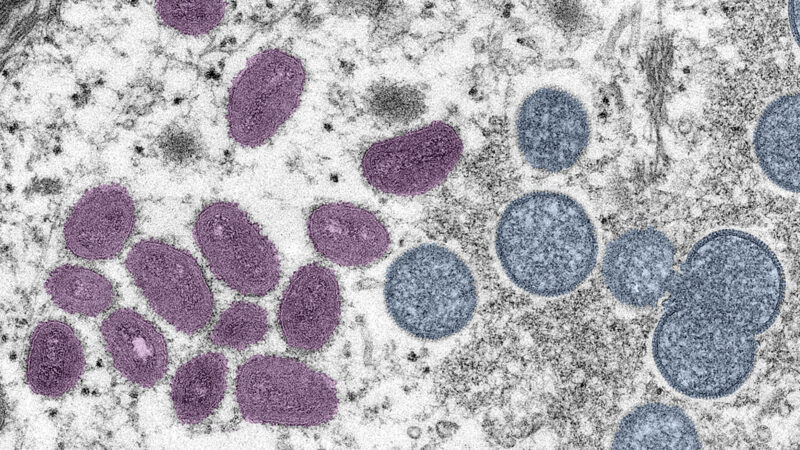A more severe strain of mpox has been detected in the U.S. for the first time
A strain of mpox disease that had previously been undetected in the U.S. has been found in California, according to the Centers for Disease Control and Prevention.
California’s health department confirmed the case through lab testing. The patient contracted it after traveling from East Africa, where there has been an outbreak of the clade I strain. The person was treated in San Mateo County and then released. The person is at home recovering, the CDC said Saturday.
The CDC says the strain presents a low risk to the general public. “Casual contact, like you might have during travel, is unlikely to pose significant risks for transmission of mpox,” it said.
The agency advises people to avoid close contact with infected people and surfaces and objects they may have come in contact with, such as clothing, bedding and toothbrushes. Those who are eligible should also be vaccinated, it said.
Earlier this year, the World Health Organization declared mpox a public health emergency of international concern.
It is a disease that is zoonotic, or caused by animals; and endemic, or regularly occurring, in Central and West Africa. It was previously known as monkeypox, but was shortened by the WHO, as critics said the name plays into racist stereotypes and prematurely suggests that monkeys are the main carriers of the disease.
There are two types of mpox, clade I and clade II. They are indistinguishable by their appearance, but clade I diagnoses have typically been more deadly and severe. However, its effects have been less harsh in the current clade I outbreak in Central and East Africa, according to the CDC.
Mpox causes a rash that can manifest on the hands, feet, chest, face or genitals. Symptoms may take 3 to 17 days to show up.
Party City files for bankruptcy and plans to shutter nationwide
Party City was once unmatched in its vast selection of affordable celebration goods. But over the years, competition stacked up at Walmart, Target, Spirit Halloween, and especially Amazon.
Sudan’s biggest refugee camp was already struck with famine. Now it’s being shelled
The siege, blamed on the Rapid Support Forces, has sparked a new humanitarian catastrophe and marks an alarming turning point in the Darfur region, already overrun by violence.
FDA approves weight loss drug Zepbound to treat obstructive sleep apnea
The FDA said studies have shown that by aiding weight loss, Zepbound improves sleep apnea symptoms in some patients.
Netflix is dreaming of a glitch-free Christmas with 2 major NFL games set
It comes weeks after Netflix's attempt to broadcast live boxing between Jake Paul and Mike Tyson was rife with technical glitches.
Opinion: The Pope wants priests to lighten up
A reflection on the comedy stylings of Pope Francis, who is telling priests to lighten up and not be so dour.
The FDA restricts a psychoactive mushroom used in some edibles
The Food and Drug Administration has told food manufacturers the psychoactive mushroom Amanita muscaria isn't authorized for food, including edibles, because it doesn't meet safety standards.







